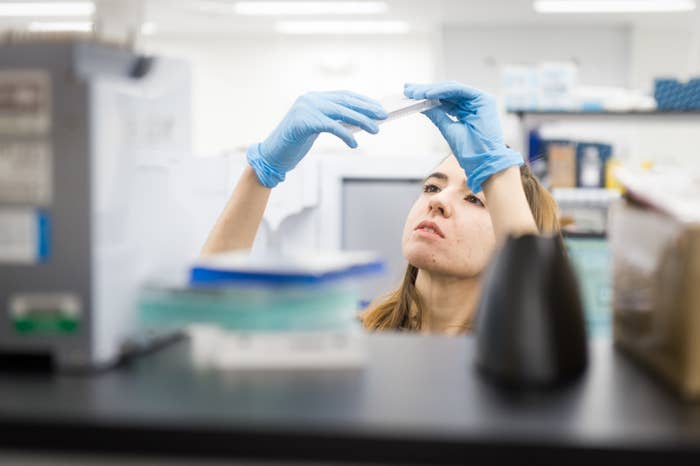
Ginkgo Bioworks, the biotech startup that’s genetically engineering microbes to make everything from fragrances to food, is ramping up production with a round of capital that values it at more than $1 billion.
The Boston company announced Thursday that it has raised the eye-popping sum of $275 million, meaning it’s raised a total of nearly $430 million. Its new status as a “unicorn,” or a privately held company valued at more than $1 billion, was first reported by Recode and confirmed by a company spokesperson.
Ginkgo tinkers with the DNA of tiny organisms, such as yeast, so they in turn produce a trait or ingredient desired by its clients. One example: For the French perfume company Robertet, Ginkgo synthetically developed a peach scent that can be bottled up in a fragrance.
This process has clear environmental and safety advantages, according to CEO Jason Kelly: It doesn’t require animal-testing or emit greenhouse gases.
“Biology is just a fundamentally better way to make stuff compared to traditional manufacturing,” Kelly, one of five Massachusetts of Institute Technology scientists who founded Ginkgo in 2008, told BuzzFeed News. “We shouldn’t be manufacturing products, we should be growing stuff.”
Ginkgo is one of a handful of “synthetic biology” startups, a new, loosely defined term that at its heart refers to the often controversial practice of genetic engineering. It’s a category that raised $1 billion from venture capitalists in 2016. Bolt Threads uses similar technology to create a $314 tie of synthetic spider silk. And Impossible Foods engineers heme, an iron-rich molecule found in meat, to make its meatlike burger taste and bleed like a real patty.
The synthetic biology industry has taken off with investors, oddly, at a time when organic products are booming and most Americans want GMO products to be labeled, even though the scientific consensus is that genetically modified crops are inherently as safe as conventional ones.

In addition to Robertet, Ginkgo has been hired by the US Department of Defense to create probiotics that would help soldiers stave off stomach bugs, and the food manufacturing companies Swissaustral and Kerry.
According to Kelly, the new investment will go toward building the company’s third DNA-manufacturing plant in Boston. It’s also expanding into fields like pharmaceuticals: Last week, it announced that it had teamed up with Synlogic to engineer probiotic treatments for severe gut disorders.
In September, it entered agriculture by forming a new company with the biotech giant Bayer. Plants need nitrogen to grow, yet excessive nitrogen fertilizer can harm the environment when it washes into waterways or evaporates into the air. The new venture, funded by $100 million, aims to coat seeds with lab-designed cells that will allow crops to make their own nitrogen fertilizer.
The employees might examine a particularly active microbe found on on corn roots, for instance, and the millions of DNA letters that make up its genome. Then, Kelly said, they’d shuffle around those letters to figure out which play a role in producing nitrogen.
“We go through many versions of that DNA code to try to find the one that takes enough nitrogen out of the air and makes enough fertilizer and lives enough on corn,” he said.
To ramp up production, Ginkgo made two big purchases this year: It acquired the DNA synthesis company Gen9, and bought 1 billion base pairs of synthetic DNA from Twist Biosciences.
Kelly intends to be transparent about the growing company’s work. In a departure from many companies opposing GMO labeling due to concern it will unnecessarily scare off consumers, Kelly has argued that Ginkgo and others should embrace the practice.
“We want people to care about how their products are made,” he told BuzzFeed News. “We can’t both say we want consumers to care about how our products are made but we don’t want to tell them it’s made with genetic engineering. That’s not a cohesive position. We believe it’s important to be transparent.”
